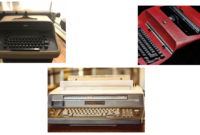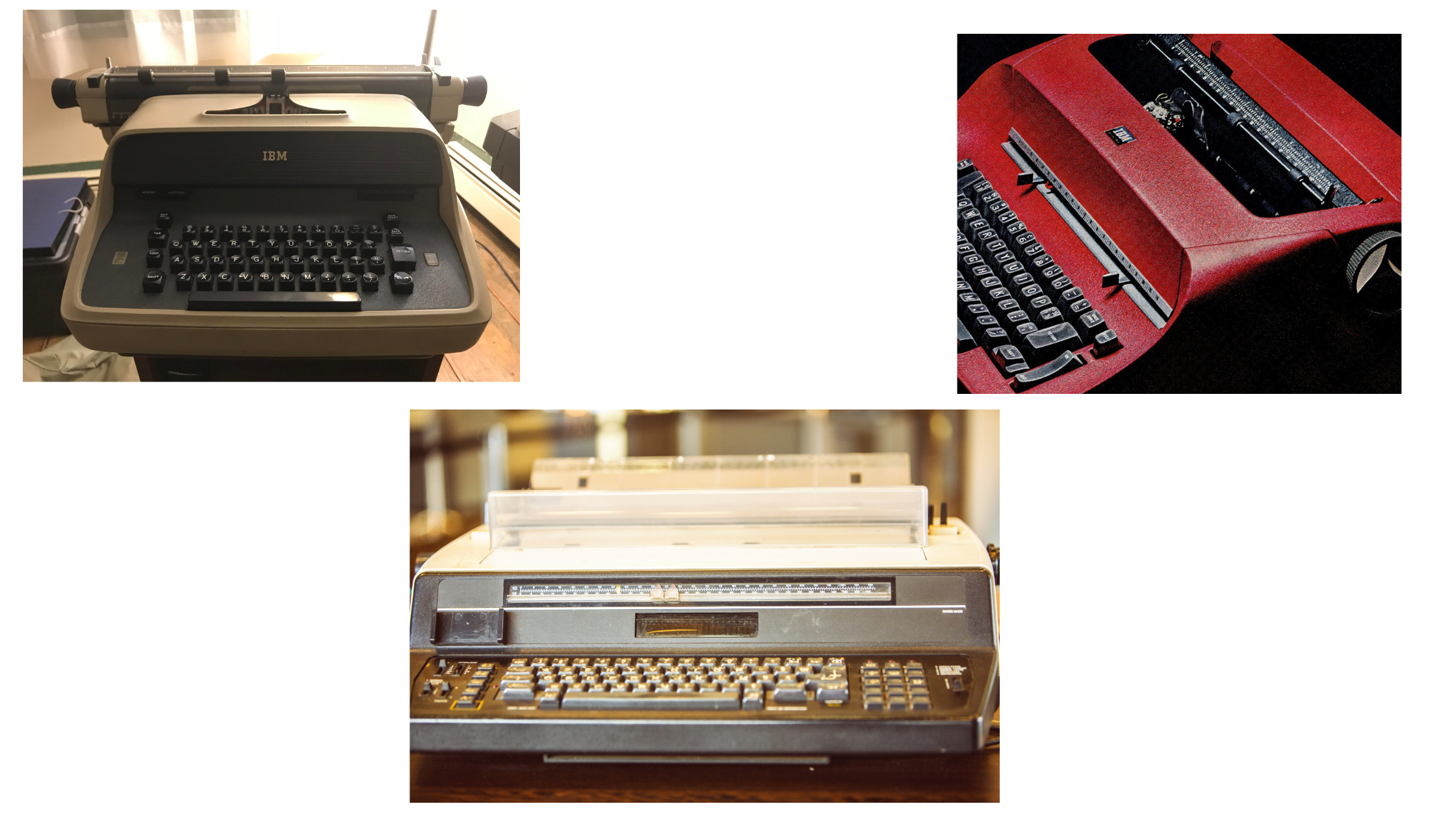
Electric Typewriters: Revolutionizing Writing Technology Through Innovation”
Introduction
Setting the Stage: Begin with an introduction highlighting the transformative impact of electric typewriters on writing technology.
Begin by painting a vivid picture of the technological leap from manual to electric typewriters, emphasizing their transformative impact on writing technology.
Historical Context: Discuss the transition from manual to electric typewriters, marking a significant advancement in typewriter technology.
Evolution and Development
Invention and Advancements
Invention of Electric Typewriters: Detail the development and introduction of the first electric typewriters, emphasizing early models and inventors.
Detail the inception of electric typewriters, highlighting key inventors and their contributions.
Technological Advancements: Explore the evolution of electric typewriters, highlighting technological improvements in speed, efficiency, and functionality.
Discuss the evolution of electric typewriters, emphasizing technological breakthroughs that improved their functionality and efficiency.
Features and Mechanisms
Distinctive Features: Discuss the unique features of electric typewriters, such as motorized typing, automatic carriage return, and enhanced printing capabilities.
Explore the unique features of electric typewriters, such as their electrically powered typing mechanism, automatic carriage return, and increased typing speed.
Mechanical Operations: Explain the mechanics behind electric typewriters, emphasizing the role of electric motors in powering the typing mechanism.
Explain the inner workings of electric typewriters, focusing on how electric motors powered the typing process and enhanced performance.
Functionality and Advantages
Enhanced Typing Experience
Efficiency and Speed: Highlight the increased typing speed and reduced physical effort offered by electric typewriters compared to manual models.
Ease of Use: Discuss user-friendly features like automatic corrections, margin justifications, and adjustable typing settings.
Improved Output Quality
Enhanced Printing: Explain how electric typewriters improved print quality with consistent and clearer characters.
Correction Mechanisms: Explore the introduction of correction options, such as automatic erasing or white-out tapes.
Impact on Writing Culture
Workplace Revolution
Office Efficiency: Discuss how electric typewriters revolutionized office work, boosting productivity and standardizing written communication.
Professional Use: Explore their significance in professions like journalism, administration, and correspondence.
Explore their profound impact on various professions like journalism, secretarial work, and formal correspondence.
Transition to Modern Era
Influence on Technology: Reflect on how electric typewriters paved the way for subsequent advancements in word processing and digital writing tools.
Legacy and Influence: Discuss their lasting impact on modern writing technology and the legacy they left in writing culture.
Collectibility and Modern Relevance
Collectors’ Appeal
Collectible Items: Explore the growing interest among collectors and enthusiasts in vintage electric typewriters, considering their historical value.
Restoration and Preservation: Highlight efforts by enthusiasts to restore and preserve electric typewriters as historical artifacts.
Contemporary Usage
Niche Enthusiasts: Discuss the continued use of electric typewriters by niche communities, writers, and artists who appreciate their retro charm.
Artisanal Revival: Explore the trend of artisans restoring or repurposing electric typewriters for modern artistic or decorative purposes.
Conclusion
Summarize Impact: Emphasize the enduring impact of electric typewriters on writing technology, workplace efficiency, and their legacy in modern writing culture.
Closing Thoughts: Conclude by reflecting on their significance in the broader context of technological advancement and their nostalgic appeal in today’s digital age.
